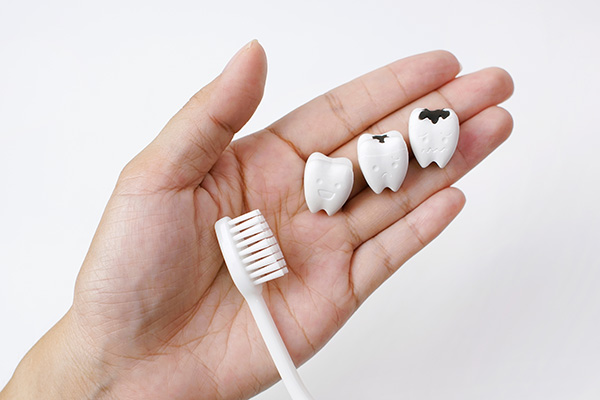 Your general dentist can offer various options for treating your cavity. Routine dental checks can prevent cavities or correct the damage right away. Worsened cavities need more attention. If you want to know how your general dentist can treat your cavities, here are the details.
Your general dentist can offer various options for treating your cavity. Routine dental checks can prevent cavities or correct the damage right away. Worsened cavities need more attention. If you want to know how your general dentist can treat your cavities, here are the details.
Fluoride treatments
A patient who had early signs of cavities can get fluoride treatments from the general dentist. Fluoride can remineralize the enamel. It can reverse the effects of mild tooth decay. The fluoride treatment from the dentist has a higher concentration. It is greater than the amount of fluoride found in mouthwash, toothpaste, or even tap water.
Dental sealants
Children are the usual patients for dental sealants. Yet, with proper treatments, adults may also qualify. The general dentist can apply sealants to protect the tooth from future decay. The back teeth are the primary areas of focus in dental sealant treatments. This area is where bacteria often thrive and cause damage.
Dental fillings
The general dentist often addresses more advanced cavities with dental fillings. Amalgam, composite resins, and porcelain are the common materials for dental fillings. The dentist injects a local anesthetic around the affected tooth. Then, drilling the decayed parts follows.
The dentist will clean and disinfect the space. Placement of the dental filling follows. The dentist will harden the filling with a curing light. Shaping and polishing it will allow the filling to stay and blend with natural teeth for a long time.
Root canal
Sometimes, cavities cause damage up to the pulp. The crack into the pulp can introduce bacteria and food particles. For this, the general dentist must remove the pulp, clean out the space and fill it with gutta-percha. A dental crown will hold the tooth together and protect it from future dental damage.
Extraction
Tooth decay can reach the area below the gumline. By this time, the root and pulp have already suffered severe damage. The general dentist will need to extract the tooth. This will prevent the infection from getting into the jawbone or other teeth. It will take days for the extraction site to heal.
Dental implants
Tooth loss often happens after severe tooth decay or periodontitis. This leaves a space between teeth. The general dentist will perform dental implant surgery. This procedure will prevent dental shifting and further complications. The dentist will screw titanium rods into the patient’s jawbone at the site of tooth loss. Placement of abutments and crowns will follow.
Dental crowns
The general dentist will place a dental crown over the tooth with severe decay of the cusps. Filing the area down will help the crown fit better. The crown will prevent further damage and restore the appearance of the tooth. Porcelain crowns feel and look like natural teeth. That is why it is a popular material for crowns.
Your general dentist can treat your cavity with the right treatment available
Cavities are destructive to your oral health. They expose your teeth and gums to bacteria. Your general dentist can help correct the damage and even prevent more damage. An appointment with your dentist can restore your affected teeth right away.
Request an appointment or call Bliss Dental at 305-564-2530 for an appointment in our Kendall office.
Related Posts
Your general dentist always encourages you to have regular dental checks. This is not only to maintain your oral health. It is also because it is crucial for your general health. If you want to know the important health reasons to have regular dental checkups with your general dentist, here are the facts.The heart is…
Restoring teeth is one of a general dentist’s goals. Dental damage is sudden. The immediate thought is to see your dentist and get some dental repairs. The damage to your teeth may be more than just a chip or a crack. This is when dental crowns might be of use. If you want to know…
General dentistry often treats people for fractured teeth. You could suddenly fracture a tooth in everyday life. When this happens, you should immediately call your dentist. When you fracture or chip a tooth, the dentist can often repair it. There are many ways to restore a cracked tooth, depending on your situation. The dentist will…

